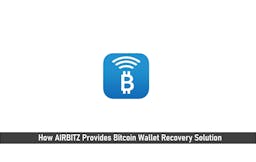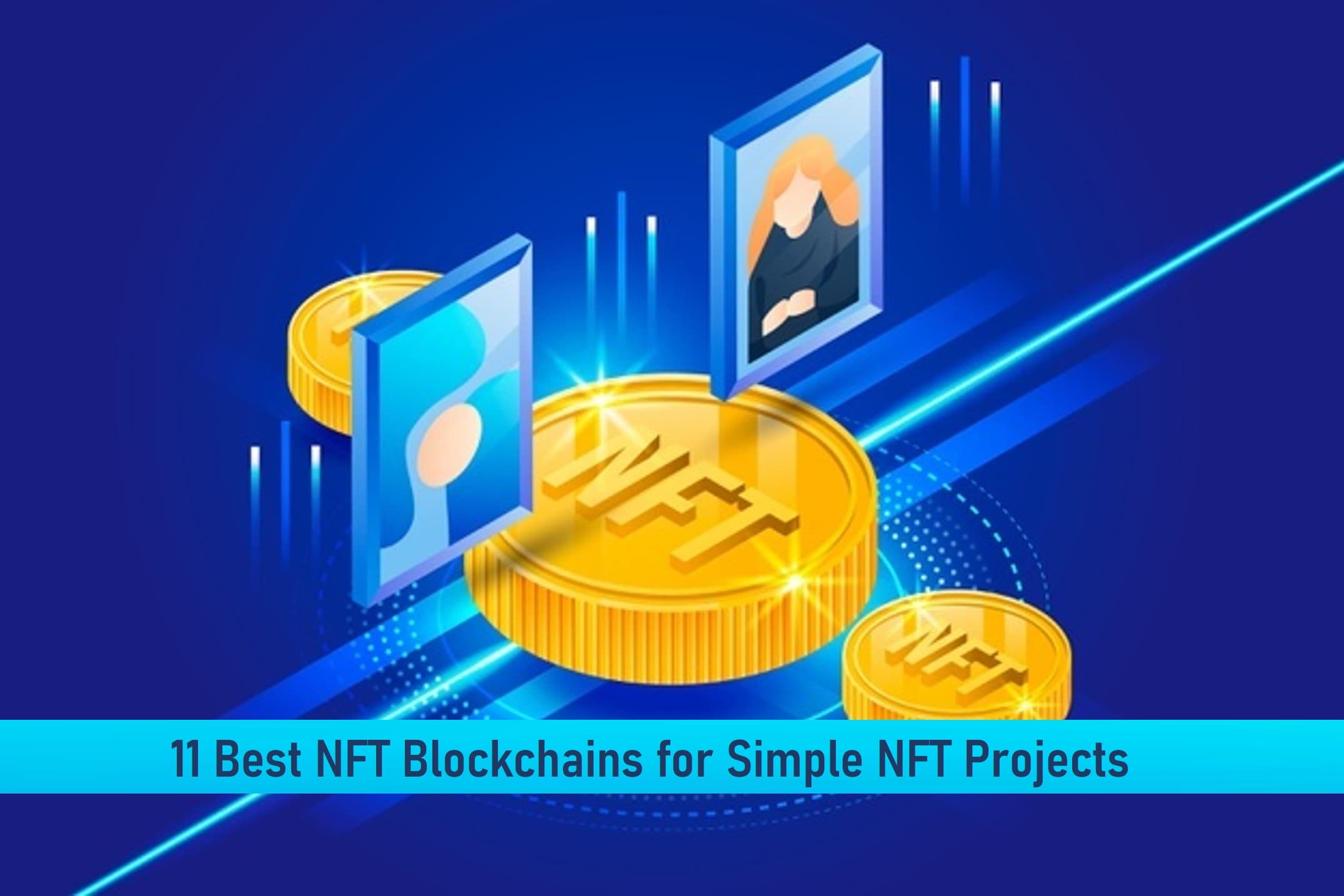
NFTs have been the rave of the moment in the crypto industry, with investors making hundreds of thousands to millions of dollars from creating and selling NFTs.
Well, NFTs, as we know them, are digital collectibles representing real-world items such as art, music, games, and videos.
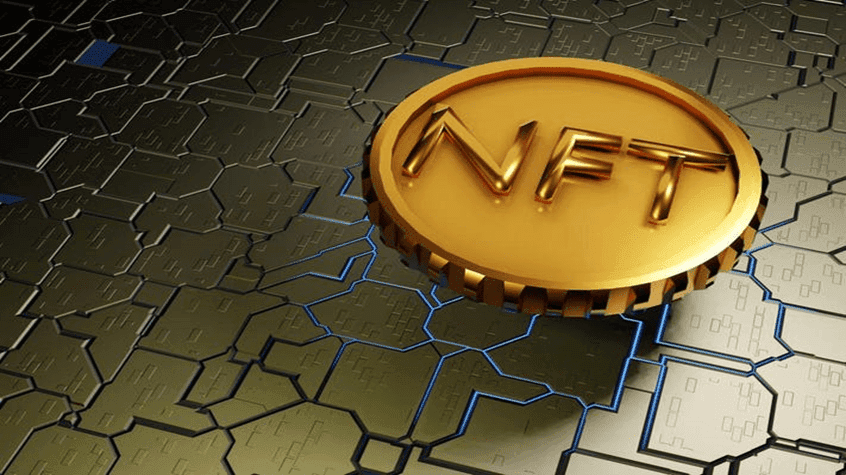
Key Takeaways
• NFT projects usually make use of blockchains as they serve as the foundation for their development.
• Before selecting a particular NFT blockchain, make sure you check for transaction and payment features so as to pick the best fit for your needs.
• The Ethereum blockchain has one of the most expensive transaction fees in the world of NFTs.
• Solana has lightning transaction speeds, reaching up to 65000 transactions per second, with plans to reach new heights of up to 700000 transactions per second.
SEE ALSO: How to Sell NFTs Quickly on OpenSea
SEE ALSO: How To Make NFTs for Yourself (6 Quick Steps)
These digital collectibles are linked to various blockchains, which is why in this article I will be listing the major types of NFT blockchains and explaining them in detail.
Moving on, NFT Blockchains aim to create a database system in which all members collaborate to preserve and update information, with no one entity having power over the system.
Which Blockchains Do NFTs Use?
There are many blockchains that are used by NFTs, but there is no doubt that the Ethereum blockchain stands out owing to its smart contract concept.
Despite this, other blockchains exist that are performing quite well and are giving the Ethereum blockchain a run for its money in terms of performance, fees, and transaction speeds.
The top-rated NFT blockchains are listed below:
1. Ethereum
2. Flow
3. Binance Smart Chain
4. Cardano
5. Solana
6. EOS
7. WAX
8. Algorand
9. Tezos
10. Tron
11. Polygon
1. Ethereum
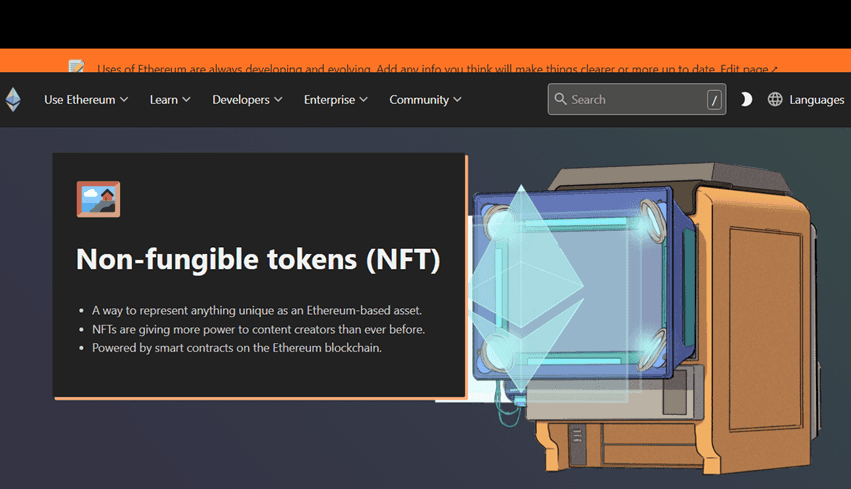
Ethereum, which was founded in 2015 by Vitalik Buterin, is at the forefront of the blockchain revolution and is now the most extensively utilized blockchain for NFT initiatives.
The transaction cost for Ethereum fluctuates depending on network congestion and is often between $20 and $70 per transaction, which is rather high when compared to other blockchains.
Furthermore, Ethereum has a poor output, allowing it to do just 13–15 transactions per second.
Nonetheless, these drawbacks have been looked into, and Ethereum developers have assured their users that there will be massive improvements with the release of Ethereum 2.0, which will reduce gas fees and allow transactions to be performed faster.
Etehereum boasts a number of successful NFT projects that utilize the blockchain as their foundation. A few of them include: OpenSea, Rarible, Nifty Gateway, KnownOrigin, SuperRare, and Decentraland.
2. Flow
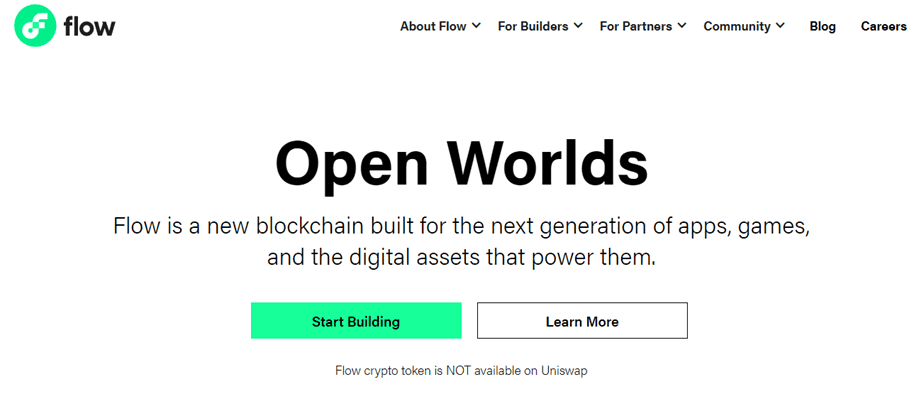
Flow, which was launched as early as 2020, has captured the interest of many crypto fans and is usually considered a viable alternative to Ethereum.
The developers of Flow are working hard to make it the finest platform for consumer apps, with improved scalability, composability, and, most importantly, a superior user experience.
One major feature that makes the Flow blockchain different from other blockchains out there is its superb performance. This blockchain is capable of achieving transactions of up to 10,000 per second.
Flow has two fees it charges depending on the action performed. It charges 0.001 FLOW to users who wish to open an account and 0.000001 FLOW to users who wish to perform transactions on the blockchain.
In terms of successful NFT projects, NBA Top Shot is by far one of the most successful examples, alongside TuneGO, BloctoBay, and xtingles.
3. Binance Smart Chain
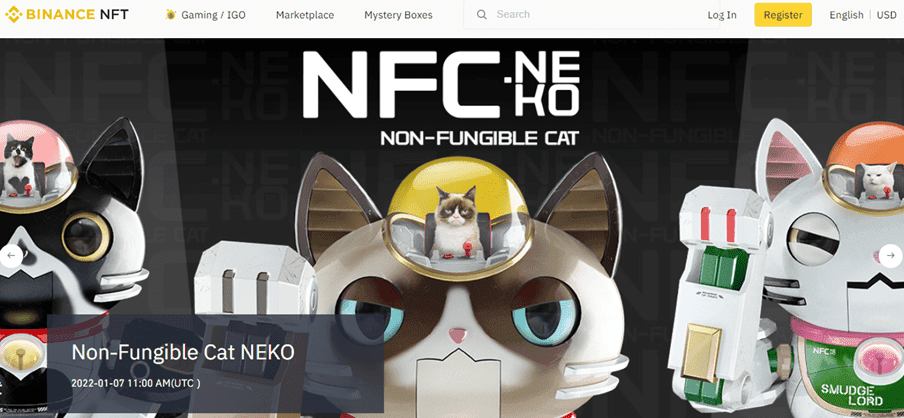
The Binance Smart Chain (BSC) is a blockchain that works in conjunction with the Binance Chain.
However, in comparison to the latter, it has extensive smart contract capability (supported by Solidity and Vyper) made possible by its interoperability with the Ethereum Virtual Machine (EVM).
Despite Ethereum’s dominance and popularity in the NFT field, hundreds of users and projects are now focusing on the Binance Smart Chain because of its high performance and low fees.
The BSC is capable of performing up to 60 transactions per second and it charges a $3 fee to users who wish to create an NFT using the blockchain, which is more affordable in contrast to the Ethereum blockchain.
BakerySwap, which is the first NFT exchange, is an example of numerous successful projects running on the blockchain.
4. Cardano
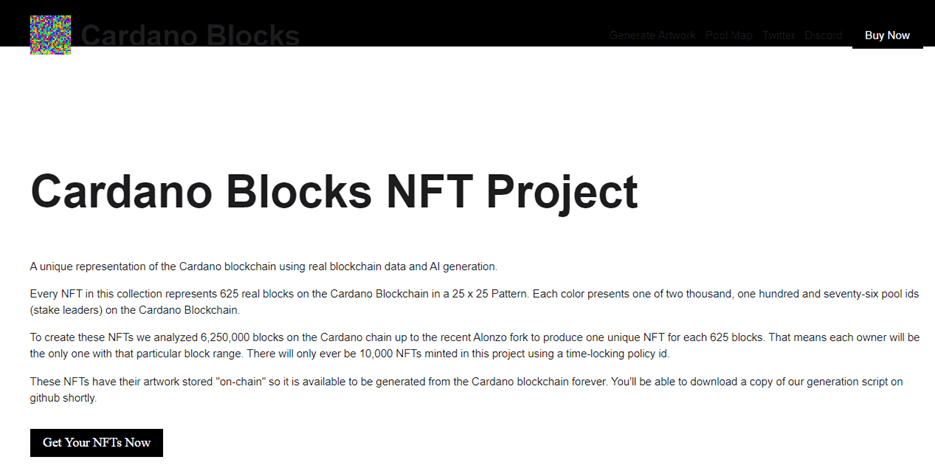
Cardano, founded by Ethereum co-founder Charles Hoskinson, is a complex, distributed proof-of-stake blockchain.
Its primary goals are to enable transactions in its native cryptocurrency (named ADA) and to provide a comfortable environment for developers to construct highly scalable and resilient Cardano-powered apps.
Cardano has high performance as it can presently handle over 250 transactions per second.
It is worth noting that its Layer 2 scaling technology, known as Hydra, plans to improve Cardano’s performance and let it grow up to 2 million transactions per second with 2000 staking pools. Cardano charges a fee of about 0.16-0.17 ADA, which is equivalent to a cent or two.
Spacebudz (which is said to be the first million-dollar NFT sale on Cardano) and Somint (an art marketplace) are two of many successful NFT projects making use of the blockchain.
SEE ALSO: Are NFTs a True Store of Value?
SEE ALSO: 10 Best Blockchain Apps You Need To Know
5. Solana
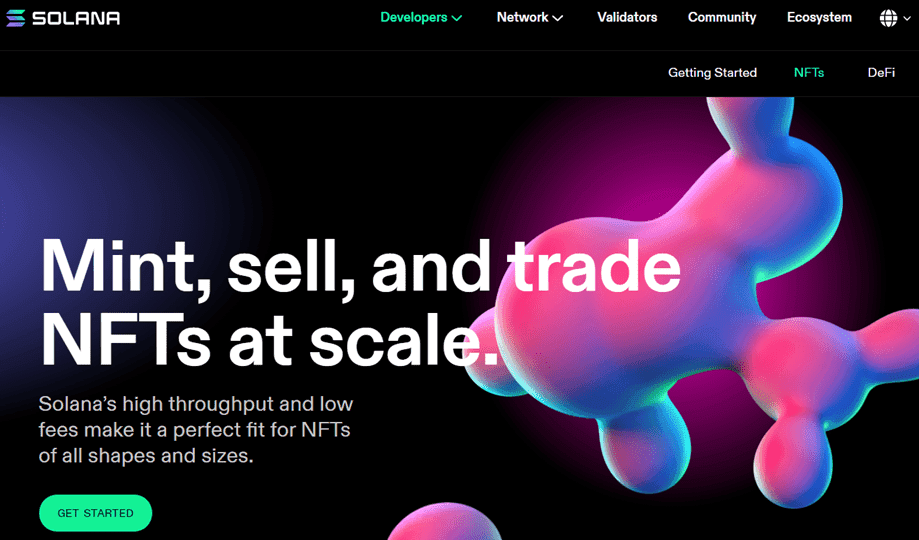
Solana, Anatoly Yakovenko’s idea, is widely regarded as one of the quickest programmable blockchains in the crypto realm, aggressively vying with Ethereum and Cardano.
Solana boasts over 400 projects cutting across DeFi, NFTs, and Web3, with an impressive market value of $65,155,587,432. Its transaction fee is quite moderate, as it charges a $0.00025 token.
The most notable aspect of Solana, which has opened the road to its widespread acceptance, is its lightning-fast transaction speed.
Solana can already execute 65,000 transactions per second, and the developers claim that when the network expands, Solana’s transactions per second will reach 700,000.
Solana has a pretty impressive collection of successful NFT projects despite its recent development. The Degenerate Ape Academy (an NFT collection consisting of 10,000 smooth-brain apes) is an example of a successful NFT project on the blockchain.
6. EOS
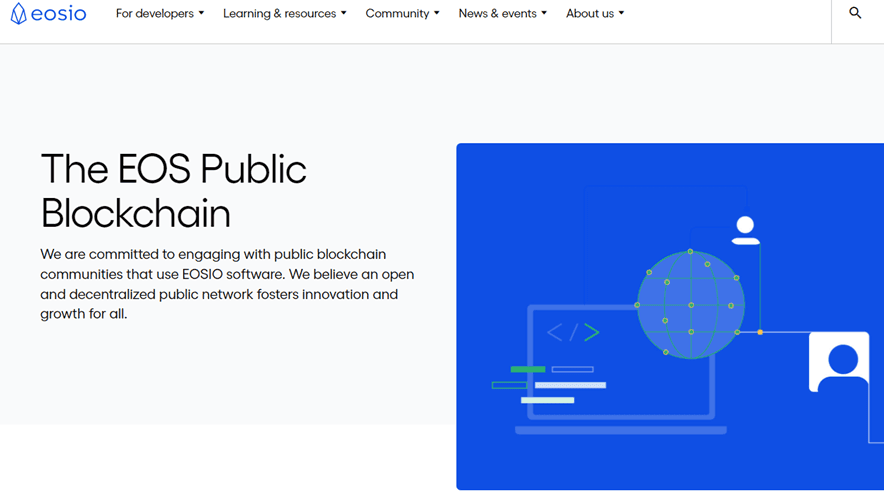
EOS is a blockchain that allows for the seamless creation of decentralized apps and smart contracts.
EOS native tokens were initially ERC-20 tokens, which meant they were built on top of the Ethereum network.
This blockchain is most known for hosting what is likely the biggest initial coin offering (ICO) ever, raising over $4 billion by selling a billion EOS tokens over the course of a year.
In terms of performance, EOS can handle roughly 4,000 transactions per second with an average confirmation time of 0.5 seconds. In terms of pricing structure, EOS theoretically does not charge any gas or transaction costs.
Users must, however, deposit some EOS coins in order to register their wallets on the blockchain and keep those coins staked.
Among the most prominent NFT projects on the EOS blockchain, you can find AtomicMarket (a shared liquidity NFT market smart contract) and Upland (the earth’s metaverse mapped to the real world and accessible via web, iOS, and Android), among others.
7. WAX

WAX, which stands for Worldwide Asset eXchange, was founded in 2017 and is a carbon-neutral blockchain that operates at 8,000 transactions per second using the delegated proof-of-stake (DPoS) consensus method.
WAX stated in January 2021 that it would institute a 2% network charge on all NFT secondary market transactions completed on the WAX blockchain. The charge is to be collected, pooled, and delivered to WAX DeFi model members.
This means that whenever a non-fungible token is bought or sold on a WAX-based marketplace, 2% of the transaction will be collected as a network fee and distributed to the WAX community via the WAX DeFi mechanism on Ethereum.
Wax has served as a solid foundation for several NFTs, including Alien Worlds (an NFT Metaverse where you can play with unique digital items) and R-Planet (a revolutionary NFT-staking and game system which allows users to benefit from their unused NFTs), among others.
8. Algorand
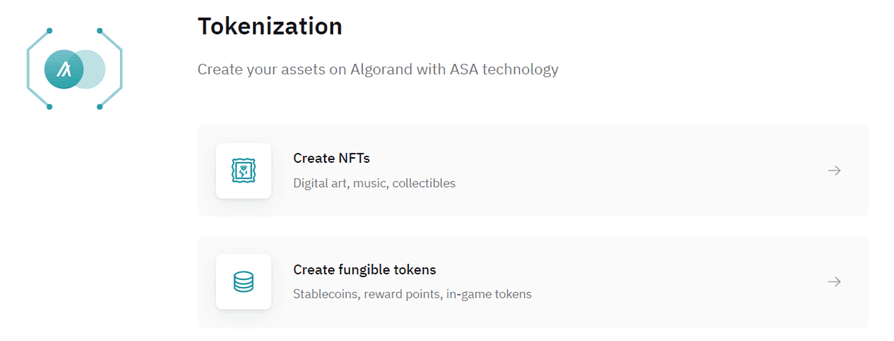
Algorand is a highly secure and scalable Layer 1 blockchain that is ideal for the launch and management of NFTs.
Because the Algorand team really believes in the relevance of the NFT market, it has given comprehensive NFT functionality that avoids the need for NFT projects to create new applications with complex capabilities.
Algorand can execute over 1,000 transactions per second and is projected to expand to 46,000 transactions per second very soon. Its transaction cost is relatively minimal and is set at 0.001 ALGOs.
Algorand has an amazing number of successful NFTs to its name despite being in existence for only three years.
One of many successful NFTs linked to the blockchain is ANote Music (an NFT marketplace connecting musicians with their audience).
9. Tezos
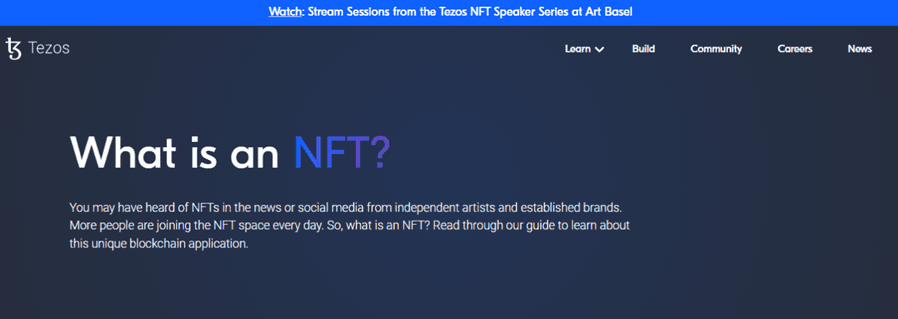
Tezos is a decentralized, open-source blockchain that facilitates the execution of peer-to-peer transactions and serves as a sophisticated platform for building smart contracts.
The Tezos blockchain processes around 40 transactions per second, with a transaction fee of around 10 cents.
The Tezos blockchain has acted as a stable basis for a number of NFT markets, including Kalamint (a curated community-owned public NFT marketplace) and Hic et Nunc (used for minting and trading NFTs).
10. Tron
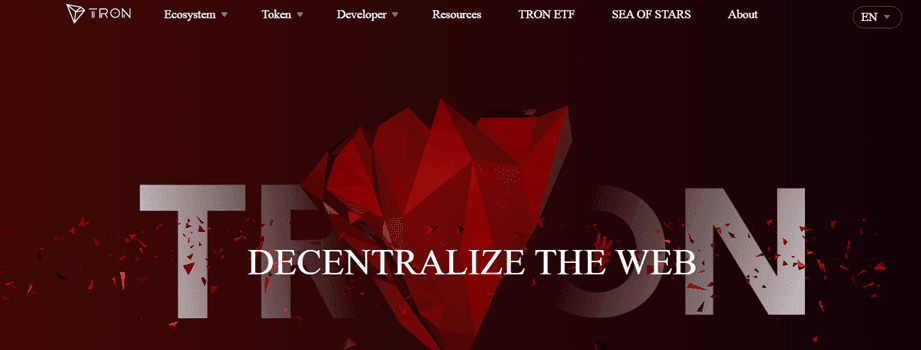
Tron was once an Ethereum-based ERC-20 coin until it shifted to its own separate network in 2018.
Tron is now a full-fledged decentralized open-source blockchain that enables the creation of dApps, smart contracts, and currencies.
Tronix, or TRX for short, is the native currency of Tron. It is used to pay content authors directly for access to applications.
The Tron blockchain promises to be able to execute roughly 2,000 transactions per second and to charge a fraction of a cent per transaction.
Tron has carved itself a position in the NFT development space and has been chosen for a number of NFT projects.
To date, you can come across several Tron-powered NFT campaigns, including TPunks (similar to CryptoPunks but developed on Tron) and TronMeebits (a collection of 20,000 distinctive 3D avatars), among others.
11. Polygon
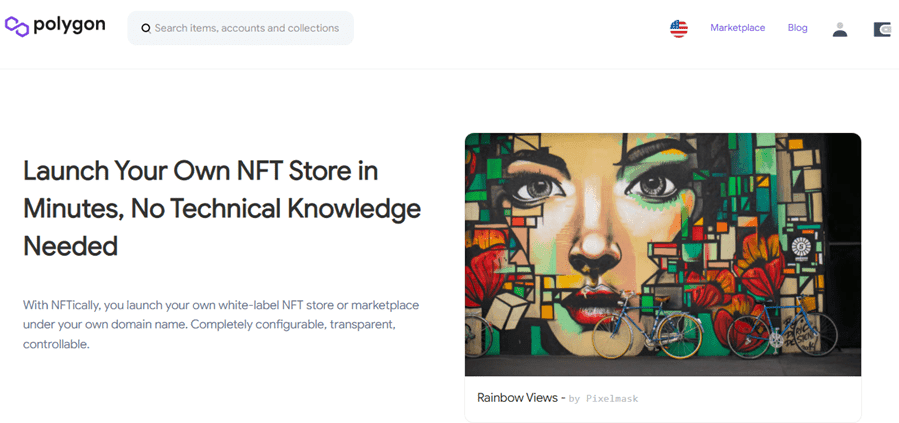
Polygon is a protocol and a framework for building and connecting Ethereum-compatible blockchain networks.
Polygon combines the best of Ethereum and sovereign blockchains into a full-fledged multi-chain system and is able to solve pain points associated with Blockchains, like high gas fees and slow speeds, without sacrificing on security.
This multi-chain system is akin to other ones such as Polkadot, Cosmos, Avalanche etc, but with at least three major upsides:
It is able to fully benefit from Ethereum’s network effects, inherently more secure and it is more open and powerful.
Users are now moving to the Polygon blockchain from the Ethereum blockchain because of its zero gas fees when purchasing an NFT.
Frequently Asked Questions (FAQs)
What are NFTs (Non-Fungible Tokens)?
NFTs (non-fungible tokens) are basically digital collectibles, which could range from art to music to games and so on, built on a blockchain. This blockchain is responsible for ensuring that the NFT is unique, different, and cannot be transferred.
Do all NFT blockchains charge the same transaction fee?
No, all blockchains do not charge the same transaction fee because they operate differently and have different features, and thus do not charge the same transaction amount.Some blockchains may not even charge you at all.
Final Thoughts
The NFT blockchains are unique in their own different ways and have all accomplished various successful NFT projects.
Nonetheless, it is important that you take a look at the blockchains listed in this article and take note of their features, such as transaction speed and fees, so as to pick the best one for your needs.
Read More
